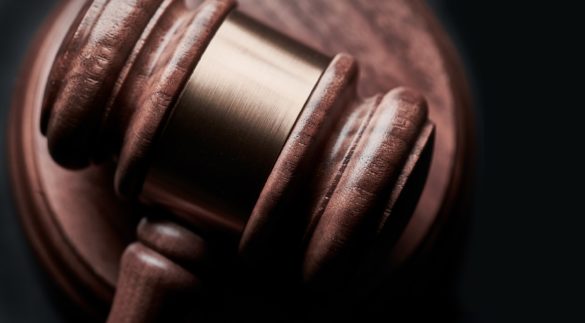
In 2004, the Colorado Supreme Court needed to answer a difficult question. Can individual state employees and labor organizations sue the governor and a state-level department director over an executive order?
The order made changes to a state personnel policy eliminating payroll deductions for union dues. Employees claimed the policy violated three provisions in the state constitution and two statutes. Former Gov. Bill Owens and the executive director of the Department of Personnel moved to dismiss the suit due to lack of standing and the payroll deduction policy didn’t violate the Colorado Constitution, respectively.
The trial court agreed and dismissed the suit without stating a reason and the Colorado Court of Appeals affirmed citing the lack of standing of the employees “even though the Executive Director had not challenged the employees’ standing to sue.”
The state Supreme Court rejected the analysis from the appellate court.
It reasoned the employees had standing because it’s “long recognized that state officials can be sued in their official capacities to challenge the validity of constitutional provisions, statutes, and administrative policies.” The court went on to note that “This is especially true for the Governor who is defined by our Constitution as the supreme executive of the state.”
But it noted the Court of Appeals cited no Colorado cases holding a similar ruling applicable to this case, and since the trial court never stated a reason for dismissing the case, the high court reversed the appellate decision and remanded the case back to the trial court.
Procedurally, the Colorado Supreme Court noted the state allowed state employees to sign up for payroll deductions since the 1930s including union dues in a process known as a “dues checkoff.” In 1973, the court explained in its opinion, a bill passed making the dues checkoff a statutory right. That law required state payroll officials to deduct dues whenever a request to do so was made by employees or associations.
The Supreme Court said two years later in 1975, the General Assembly passed another bill that required the state controller to “regulate, approve, and review all payroll deductions for all state employees.” But the regulation by the controller exempted deductions authorized by statute, which would have included the dues checkoffs.
Around 20 years later, the Department of Personnel was reorganized and that bill repealed both of the previous statutes about dues checkoffs and payroll regulations. Under the reorganized department, the state Supreme Court noted, the executive director was required to regulate payroll deductions for all state employees, and deductions that were “expressly authorized by statute, or state-sponsored” were exempt again. But the dues checkoffs statute was repealed so it wasn’t authorized by statute anymore.
In 1998, that section requiring regulation of payroll deductions and stating exemptions was repealed but employees and employee associations continued to utilize the largely unchanged program until 2001. Deductions weren’t just for union dues and would sometimes be for athletic tickets, donations, bonds or art and music subscriptions, the Supreme Court noted.
But in May 2001, Owens enacted an executive order that defined the policy around payroll deductions. The order, according to the court’s opinion, said, the “[S]tate government should not use taxpayer resources to duplicate services that can be provided by the private sector.” The order directed state employees to arrange personal deductions through their banks instead.
“To recapitulate the history, employees had the right to automatic payroll deductions until 1996-first informally, and then by law,” the court explained.
The Supreme Court granted certiorari to decide if state employees and their associations have standing to challenge the executive order and the new policy for payroll deduction. Because the employees could show the policy and the executive order deprived them of the right to even be considered for a payroll deduction, and because the associations claimed that prohibiting automatic payroll deductions would disrupt their ability to collect dues to the extent it would “impair their ability to exercise their right of free speech and association,” the court held the employees and their associations had standing for both.
The court also found that since the employees sued Owens and the personnel director in their official capacities, they were properly named as defendants.

